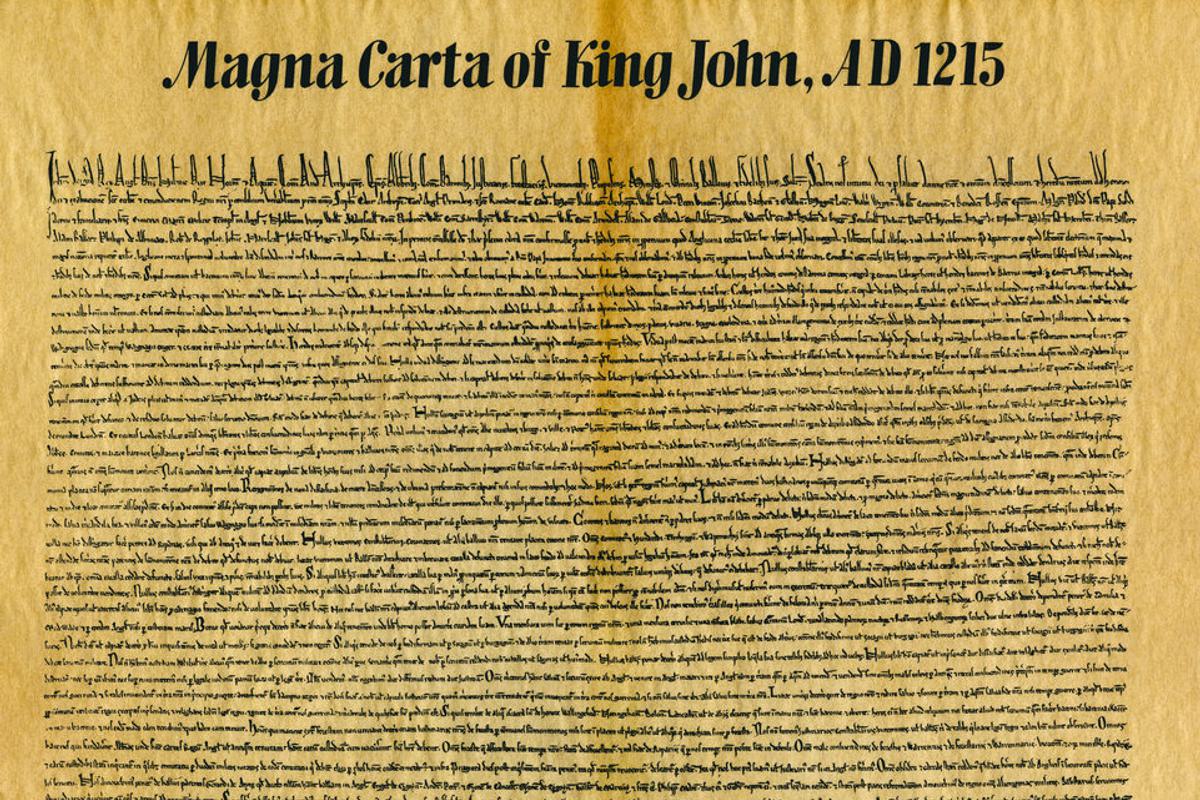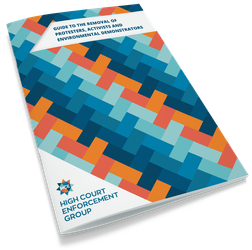Eviction of freemen-on-the-land

Over the years, many of our clients have been faced with these so-called “freemen-on-the-land” who cite legal arguments as to why the laws of England and Wales do not apply to them. This activity was particularly prevalent during legal restrictions due to Coronavirus regulations.
Freemen-on-the-land believe that the Magna Carta and “common law” mean that they do not have to comply with legislation. In one of our recent cases, the defendant claimed to be the self-appointed “sheriff of the whole of England”.
OPCA
In Canada in 2012, a judgment of the Court of Queen’s Bench of Alberta in the case of Meads v Meads painstakingly and comprehensively dismantled the legal arguments of these various linked movements (referred to by the judge as “Organised Pseudolegal Commercial Argument”, or “OPCA”, due to a common thread of the groups’ arguments being that in order to be bound by the law, you have to explicitly agree to it, akin to entering a commercial contract).
OPCA and freemen-on-the-land claims
Here is a breakdown of the claims they make and what the actual legal situation is in rebuttal, covering:
- Consent
- The jurisdiction of common law
- Magna Carta 1215
- Remit of the sovereign and government
- Living person
- Demands for evidence
Consent
Freemen-on-the-land claim that they are not bound by the laws of England and Wales if they do not consent to them. This is meaningless.
While your consent is required to enter into a legally enforceable contractual agreement with another person or organisation, there is no principle of English & Welsh law that you are required to consent before being bound by the laws made by Parliament. The principle underpinning our constitution is that Parliament is sovereign, and can make or unmake any law it wishes.
The jurisdiction of common law
Common law is the incremental development of the law by the higher courts; it fills the gaps in legislation made by Parliament.
Parliament is sovereign, meaning that legislation enacted by Parliament takes precedence over previous court decisions (common law), and courts are required to interpret existing common law principles consistently with legislation.
We are all bound by both sources of law. You cannot elect to live under the jurisdiction of only one or the other.
Once a principle of common law has been superseded by statute or by a development in the common law, it cannot be revived by somebody saying, “I still consider myself bound by the old common law”.
Magna Carta 1215
Freemen-on-the-land followers claim that article 61 of the Magna Carta 1215 means they have a right to enter into lawful dissent if they feel they are being governed unjustly.
Chapter 61 – not article – granted a right to 25 barons to “distrain upon and assail” the monarch if he or his servants offended or transgressed this agreement. This right was only granted to the 25 barons and people who had sworn an oath to follow the commands of those barons. It was not a right granted to the population at large.
Very importantly, and fatally for this argument of the freemen-on-the-land, Magna Carta was declared void by the Pope within a year. It was reissued several times, in various forms, but Chapter 61 was never revived.
Indeed, out of the 63 chapters that appeared in the 1215 Magna Carta, only four are still in force today, the remainder having been repealed over the centuries.
So in short, Chapter 61 no longer exists, and even when it did, it didn’t give a general right to dissent or rebellion.
Remit of the sovereign and government
Freemen-on-the-land claim that “the sovereign and his government are only there to govern us and not rule us and that this must be done within the constraint of our common law and the freedoms asserted to us by such law. Nothing can become law in this country if it falls outside of this simple constraint.”
The fundamental principle underpinning our constitution is that the King in Parliament is sovereign and can make or unmake any law he likes. Attempting to draw a semantic distinction between “govern” and “rule” does not get around the fact that laws are binding on those to whom they apply – i.e. all of us. Sovereignty means that Parliament can legislate to completely overturn the common law. No common law principles have immunity in this respect.
Living person
The claim that one is a living person and statutory regulations only apply with one’s consent is meaningless.
We all, from the moment of birth, have a legal personality. You cannot opt out of it by declaring yourself a “living person”, or a “natural person”, or a freeman-on-the-land. None of these devices has any legal meaning or effect.
Demands for evidence
Freemen-on-the-land will often issue documentation that contains demands for evidence and that, should this not be provided, they will “take your silence as your assent and agreement.”
A contract requires offer, acceptance and consideration (“quid pro quo”). You cannot enter into a contract with someone by sticking up a poster of demands and saying to the world at large, “I’ll take silence as your agreement”.
Even if you were somehow to enter a legally binding contract with, say, an individual police officer or local government official, this would not have any effect on whether the law applies to you, or what powers the state has available to it. If the police reasonably suspect that you are breaking the law, they have a host of enforcement powers available, none of which is conditional on them obtaining your consent or complying with a list of demands that you’ve posted on your property.
Outcome of our recent cases
In all our recent cases, despite the unlawful occupants refusing to accept the court paperwork of our authority to act and in some cases resisting removal, they were removed and we returned the properties to their lawful owner.
Conclusion
Sadly, many desperate defendants have been sucked into the beliefs of the freeman-on-the-land and have found, to their cost, that there is no legal foundation. As a result, desperate people have lost their cases and face financial ruin.



